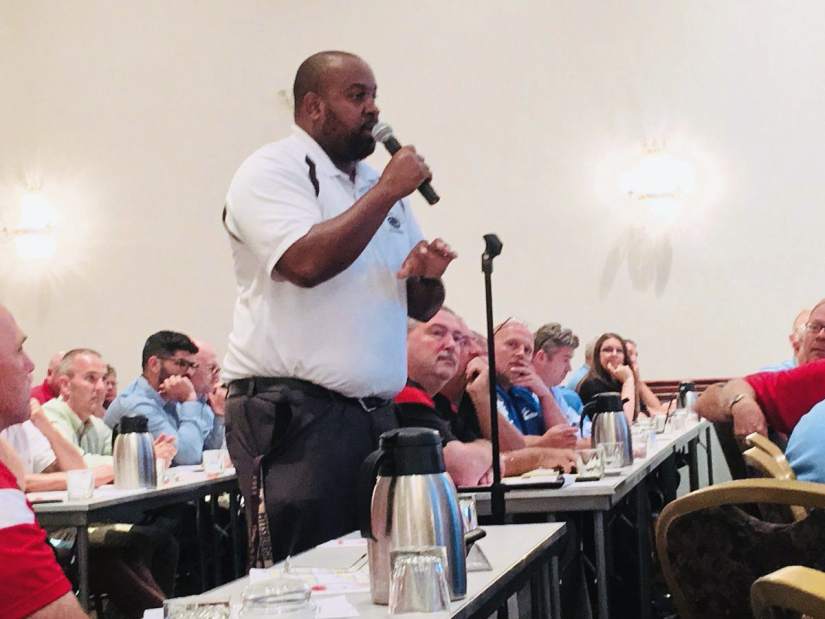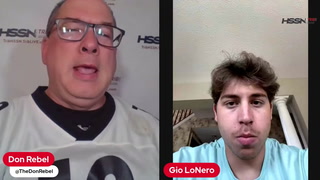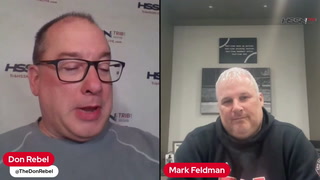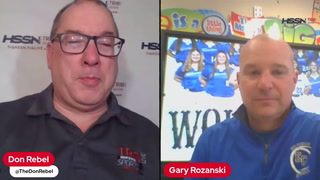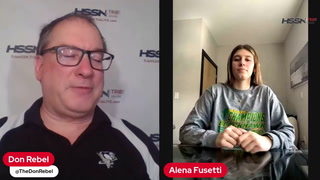Administrators from WPIAL schools had varying perspectives at PIAA Playoff Equity Summit
By:
Sunday, July 29, 2018 | 10:42 PM
As a Maryland native, Woodland Hills athletic director Ron Coursey comes from a state where public and private high schools already play in separate leagues and compete for separate championships.
“You can play each other in the regular season if you choose to, but typically only your high-level competition plays the independent schools,” said Coursey, a graduate of Howard High School in Columbia, Md. “If a kid leaves from a public to a private, it’s never a competitive-balance issue because you don’t play each other for a state championship.”
Public schools compete in the Maryland Public Secondary Schools Athletic Association. Private and parochial schools compete in the Maryland Interscholastic Athletic Association.
Organizers of the PIAA Playoff Equity Summit in State College have discussed forming their own public school association in Pennsylvania if the PIAA doesn’t create separate playoffs that split public schools away from private, parochial and charter school opponents. As a public school administrator, Coursey said he understands their competitive-balance concerns, but he also warned his colleagues to proceed with caution.
“It’s something that definitely needs to be addressed,” Coursey said. “But I think we need to be very careful about throwing the baby out with the bathwater.”
Public school administrators from more than 150 schools convened Tuesday at the Ramada Hotel & Conference Center in State College, a list that included fewer than two dozen WPIAL schools.
In all, the WPIAL has more than 100 public schools.
Representatives from Baldwin, Burrell, Butler, Canon-McMillan, Clairton, Ellwood City, Fox Chapel, Gateway, Hampton, Jefferson-Morgan, Kiski Area, Laurel, New Castle, South Fayette, South Park and Woodland Hills were scheduled to attend, according to organizers. Pittsburgh Public Schools also was on the list.
Four WPIAL administrators who attended the summit, all there for varying reasons, provided their perspectives:
RON COURSEY, Woodland Hills athletic director
Retired Woodland Hills football coach George Novak might have won several more titles if not for non-boundary schools, Coursey told the summit crowd during an open comment session. But Coursey also shared concerns that the new transfer restrictions approved last week by the PIAA will hurt minority students disproportionately.
The rule forces transfers in 10th, 11th and 12th grade to sit out the postseason.
“There are a lot of African-American student athletes that are in tough situations,” he said. “This new (written in) black and white transfer rule puts them in a situation where they are now robbed of an opportunity to secure a college scholarship, which in 99 percent of the homes of these students that I’m referring to, is the only way that they go to college.”
Coursey attended Tuesday’s summit to represent not only Woodland Hills but other schools with similar student demographics.
“I felt like we needed to be represented,” he said. “I think when you talk about equity, it goes deeper than competitive balance. Not just equity on the field but equity in our communities. I serve a school district that has some low social-economic demographics, so I want to make sure all the decisions being made are for the benefit of all kids, not just a certain group of kids.”
BOB BOZZUTO, North Allegheny athletic director
A majority of those taking part Tuesday favored separate playoffs for public and private schools, according to a vote of hands, but not all were on board.
“I don’t see this as a boundary/non-boundary issue,” Bozzuto said. “It’s not an even playing field, but I think this is a transfer issue.”
Bozzuto agreed with PIAA executive director Bob Lombardi, who has said that separating public and private schools is a question for legislators and lawyers, not for the PIAA board of directors. Lombardi has pointed to a state law passed in 1972 that required the PIAA to accept private schools.
“In this particular case, I think it’s cut and dried,” Bozzuto said. “At our last ADs meeting (this spring), he told every athletic director that was present that when he brings it up (to Athletic Oversight Committee members), they tell him don’t bring it up. And then the parochial solicitor says we’re going to sue.”
Bozzuto believed summit organizers are taking the wrong approach. There’s too much focus on “championships and trophies,” he said.
“They talked about outcome goals,” Bozzuto said. “They didn’t talk about performance goals. As the chairman for coaching education in the state, I wish that people were as passionate about developing and supporting a very strong coaching education program in their school district.”
JOHN PETERMAN, Kiski Area athletic director
The boundary vs. non-boundary debate has focused primarily on two sports: basketball and football, where private, parochial and charter schools have won an inflated percentage of PIAA championships. But many who attended Tuesday wondered why focus on only those two?
“We just wrestled Bethlehem Catholic (in the state championship),” Peterman said, “and if a few matches go our way, we win the state title. But they had kids from New Jersey and I believe their 170-pounder was from Chandler, Ariz. That’s one heck of a commute from Arizona.”
The PIAA approved a competitive-balance formula last week that impacts only football and basketball teams. If the PIAA addresses competitive balance in those sports, it should also balance wrestling, Peterman argued.
“It’s got to be equity in all sports, not just handpick the two prime sports,” Peterman said. “It goes from tennis to all the sports, whether it’s golf or anything.”
JOSEPH ORR, Jefferson-Morgan superintendent
Orr expressed concern that it’s harder to define a traditional public school.
For example, his small, Greene County district is losing students to a larger public school in a nearby county, he said, through rules that allow them to transfer for programs such as Junior ROTC.
“Traditional schools can be non-boundary and I want you to understand that,” he said. “… I’m losing students and I’m losing student-athletes like a bucket with a leak in it. They’re leaving because that district – which has been very smart – is offering (instructional programs) like horticulture, vet tech, athletic training and so forth. If my district doesn’t offer them, they can go to that district.”
Administrators from other districts raised questions about public schools that accept tuition transfers. Orr said he wasn’t in favor of limiting educational opportunities, but wanted to find a way to keep athletes from exploiting transfer loopholes.
“If you fail to recognize something,” he said, “we’re going to be right back here in a couple of years.”
Chris Harlan is a Tribune-Review staff writer. You can contact Chris at charlan@tribweb.com or via Twitter @CHarlan_Trib.
More High School Other
• High school scores, summaries and schedules for April 24, 2024• High school scores, summaries and schedules for April 23, 2024
• High school scores, summaries and schedules for April 22, 2024
• High school sports schedules for April 22, 2024
• Penn-Trafford notebook: Warriors boys track looks to build off Wildcat Invitational win

